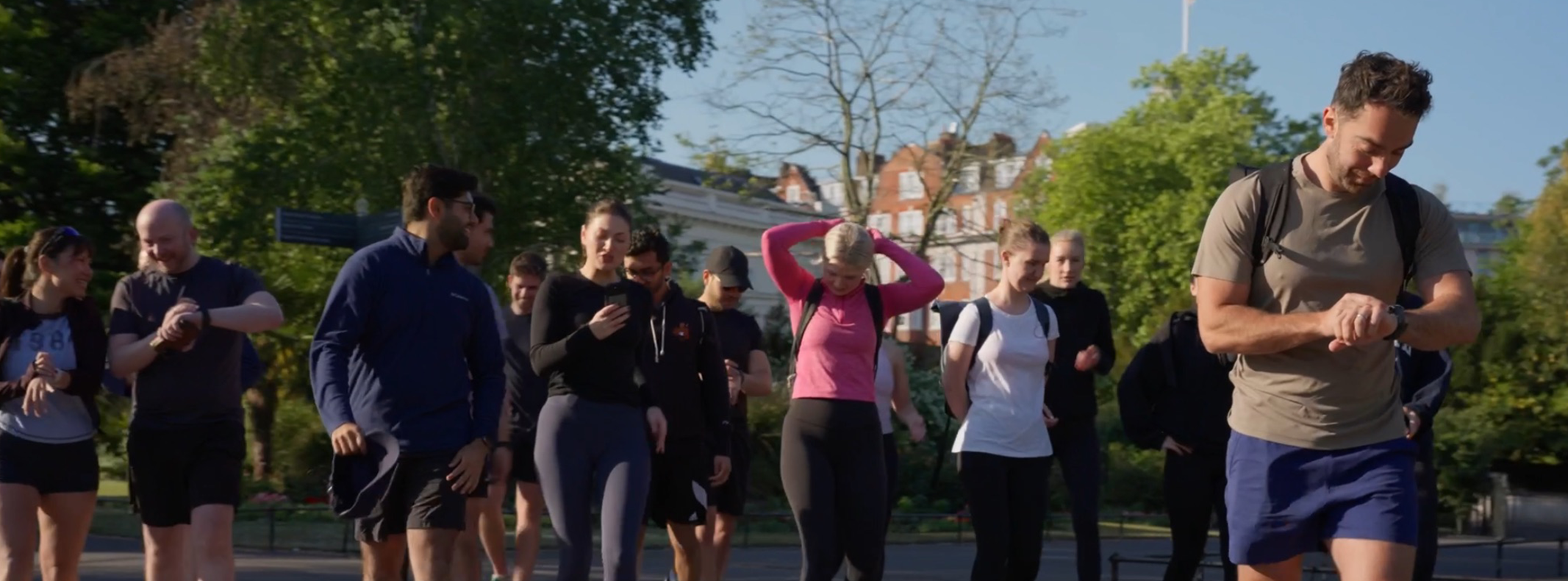‘A storytelling organisation’: Lessons in culture with the Octopus Energy CFO
Despite an unenviably busy schedule as the CFO of the UK’s biggest electricity supplier, Octopus Energy CFO and co-founder, Stuart Jackson, found time to sit down and talk through some of the key learnings, insights and strategies he’s acquired through the nine years of Octopus Energy’s incredible growth.
In part one, Stuart unpacked the importance of trying things out (and learning from the consequences), the advantages of reaching a million customers, and why, in the face of the big picture, you shouldn’t forget about the details. You can catch up with that here.
In this second part, our focus was on all things people and talent. He shares his thoughts on company values, HR and some relationship advice as well.
You’ve led Octopus Energy through some really challenging times. How do you manage stress? Have you ever worked with a coach for support?
SJ: I can’t just sit at my desk for many hours a day, so I break up the day to ensure there is space between meetings or just to get out of the office, have a brisk walk or a coffee,or just change the environment. I sometimes do walking meetings: mixing things up is really important. When the business started my kids were really young – they needed a lot of attention, which is a good way of switching off. Albeit hard work!
I have used coaches in the past, mostly as performance coaches, creating an agenda and holding you to task when you’re doing it. I think they’re specifically useful when you have blockers for things. Over long periods of time I feel they can become a prop, but if there’s a specific problem you want to solve it’s a good thing to do.
How do you approach leadership recruitment? Do you look for experience, or competence and hunger?
SJ: There are some roles where ‘Been there, done that’ is helpful, and, over time, we’ve needed to hire individuals with specific experience. But, certainly in the early days, we almost actively didn’t want people from the sector. They can come with a set of preconceptions, as well as rigidity, and we wanted people who could think outside that, challenge and innovate.
‘Fit’ is a difficult thing, but our talent team has become remarkably good at spotting the traits we want. People with drive and curiosity but who also care, who do things because they want to and it feels like the right thing to do – not because they’re following any particular agenda. People who’ve got energy and take time to do things right. No ego, frankly. People who take or offer feedback fast, in open, considered ways. Those are the things that matter to build great teams.
How do you propagate culture and values?
SJ: We’re quite a principled business, but unlike a lot of big corporates we don’t write them down. There’s no list of ‘Four values’ or mantras that get trotted out all the time.
We do a really good job of propagating culture through telling stories. We’re a great storytelling organisation. What’s brilliant about this approach is that it’s very easy to understand, and people get the emotion of it, as well as the logic and principles. What matters is that when you understand the spirit of something, you can reinvent it for different circumstances in the right way, instead of just trotting out the same set of principles that may not be quite appropriate.
When we started off in a shared office space in Hammersmith, we used to end the week in the pub and chat about what had happened. As we got bigger, particularly when we moved into central London, and it became too hard to go down to the pub, the question was, how do we continue that thing?
Now, every Friday, at 4.15pm, we have a ‘Family dinner’. These days, it’s effectively an all-hands Zoom call. In the big offices we bring people together, with big screens, and link up all the other offices and remote workers.
It’s a great forum for sharing examples of things. They have to be fun, educational, informative and non-dogmatic. Things that are interesting and relevant to everyone in the organisation. It’s a chance to see what’s happening in other places, customer stories or stories about things people have done that can help motivate colleagues to act in their own worlds within the business.
A couple of years ago it was widely reported that Octopus Energy doesn’t have an HR team – is this still the case?
SJ: The famous BBC article! It’s still the case. It comes from a principle which is born from observation of life in big corporate, where there’s a fallacy around HR: that they’re there to protect employees.
Of course, that’s not true. HR teams essentially help the corporation manage employment law and risk. A consequence of having an HR team is that managers start to delegate responsibility for looking after their teams to HR – and that lack of ownership is not what we’re looking for. We want our managers to feel responsible for their teams.
There will naturally be times and situations when managers don’t have all the tools for this so we invest in training, and we offer managers support with legal things. We bring those specialisms to managers to help them with specific problems, but they need to own it and drive it.
We encourage managers to escalate more challenging situations so there is oversight and support, but, fundamentally, managers are responsible for managing – in all its forms.
Without sounding like a marriage counsellor, what are your top tips for building a sustainable, long-term co-founder relationship?
SJ: It’s an interesting analogy, because it is like any significant relationship and the things that make it work are the same. Good communication, a good understanding of one another. Respect. Being thoughtful about interactions.
Fundamentally, it has to be enjoyable. As any founder will know, building a business is almost a way of life. It’s like having a baby, which goes through the incubation stage, early, when it’s very fragile, through to later stages when it takes on a life of its own. The way you work together and live through that is important. You bring different perspectives, together you work through things and, hopefully, power a force for positive change.
How important is friendship as co-founders?
SJ: It’s interesting. A number of us on the management team, and some of our earlier hires, as well, have all worked together in different forms over the years. That shared history is really important. We’ve established social norms between us, and when you have that shared society around you it means there’s something to lose if you don’t behave well in the relationship.
If people have successfully worked together before, that’s a pretty good risk indicator. Some of that social formation has already happened, you know how people think and how they’re going to respond to things. It helps moderate communications. I think it’s really important – if I were investing, I’d be happy to see people that had gone through that together already.
It’s rare to spend time with a true disruptor, so my thanks to Stuart for sharing his insights. As he and the Octopus Energy team have so ably demonstrated, doing things differently pays off.
Whether this means fostering a culture and shared values around compelling stories, supporting management in engaging with challenges others would outsource, or holding a meeting on the hoof, it’s clear that responsibility, common goals, innovation and space for reflection can power a business through extraordinary growth.
At Octopus Ventures, we recognise that people are behind the ideas that are shaping the future. Support, from founder to team level, can make all the difference. To read more of our resources for founders, on topics ranging from coaching to angel investing, developer recruitment to sales team motivation, head to the resources section on our website.













